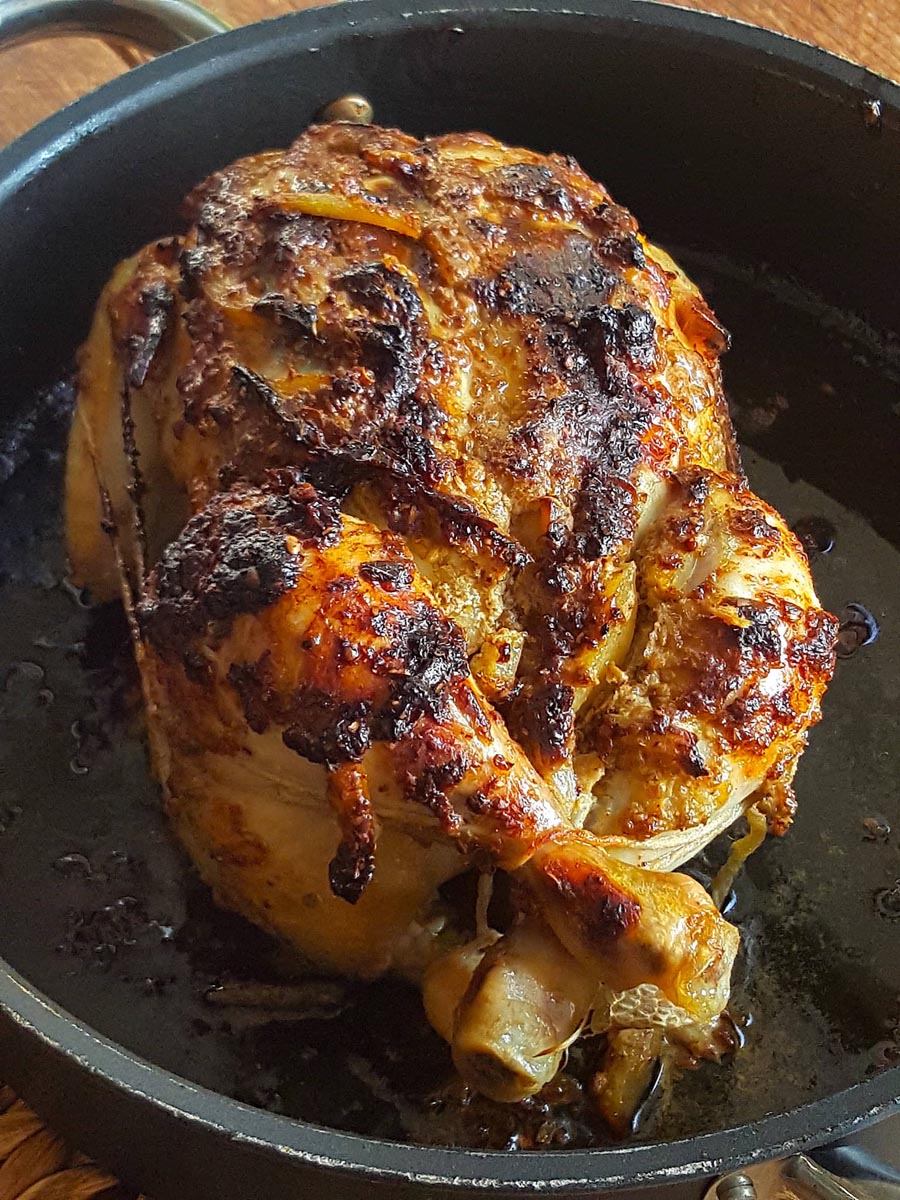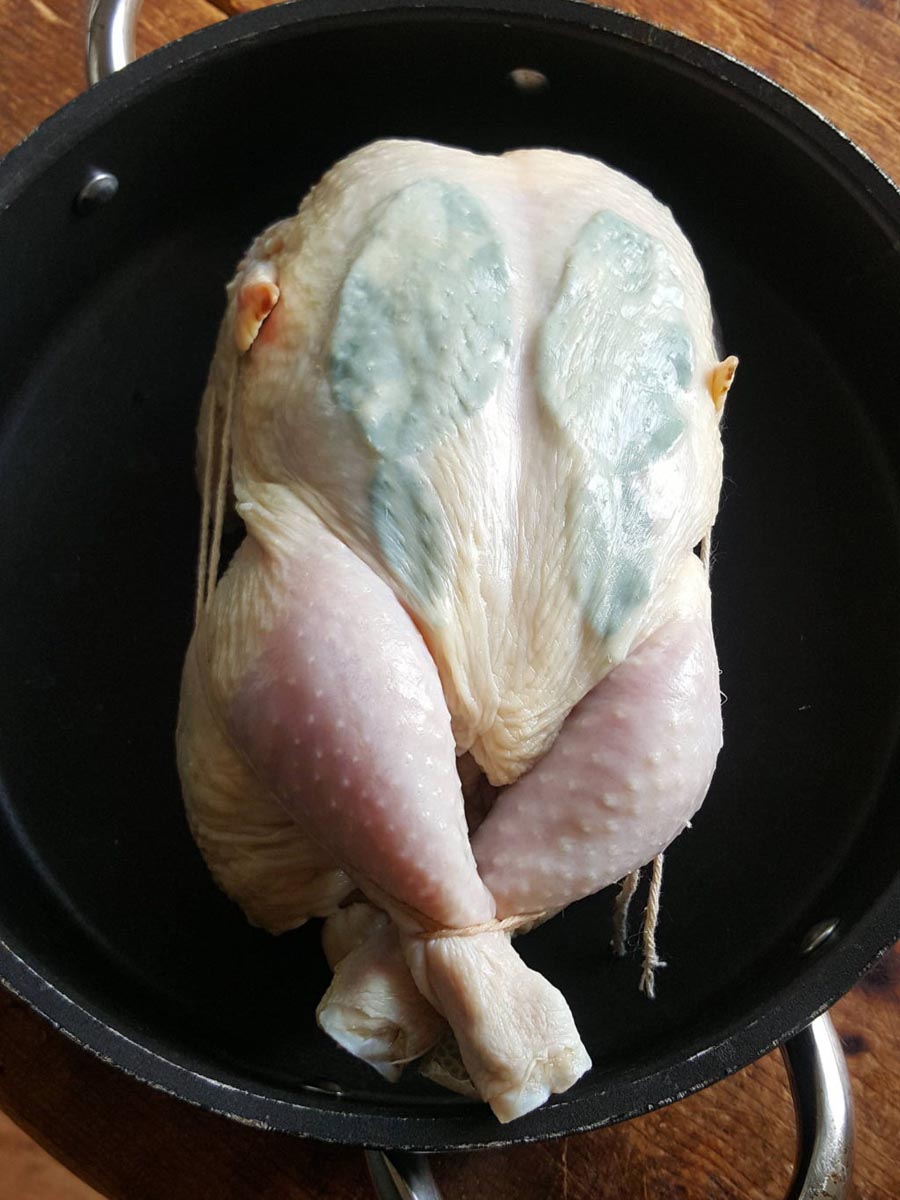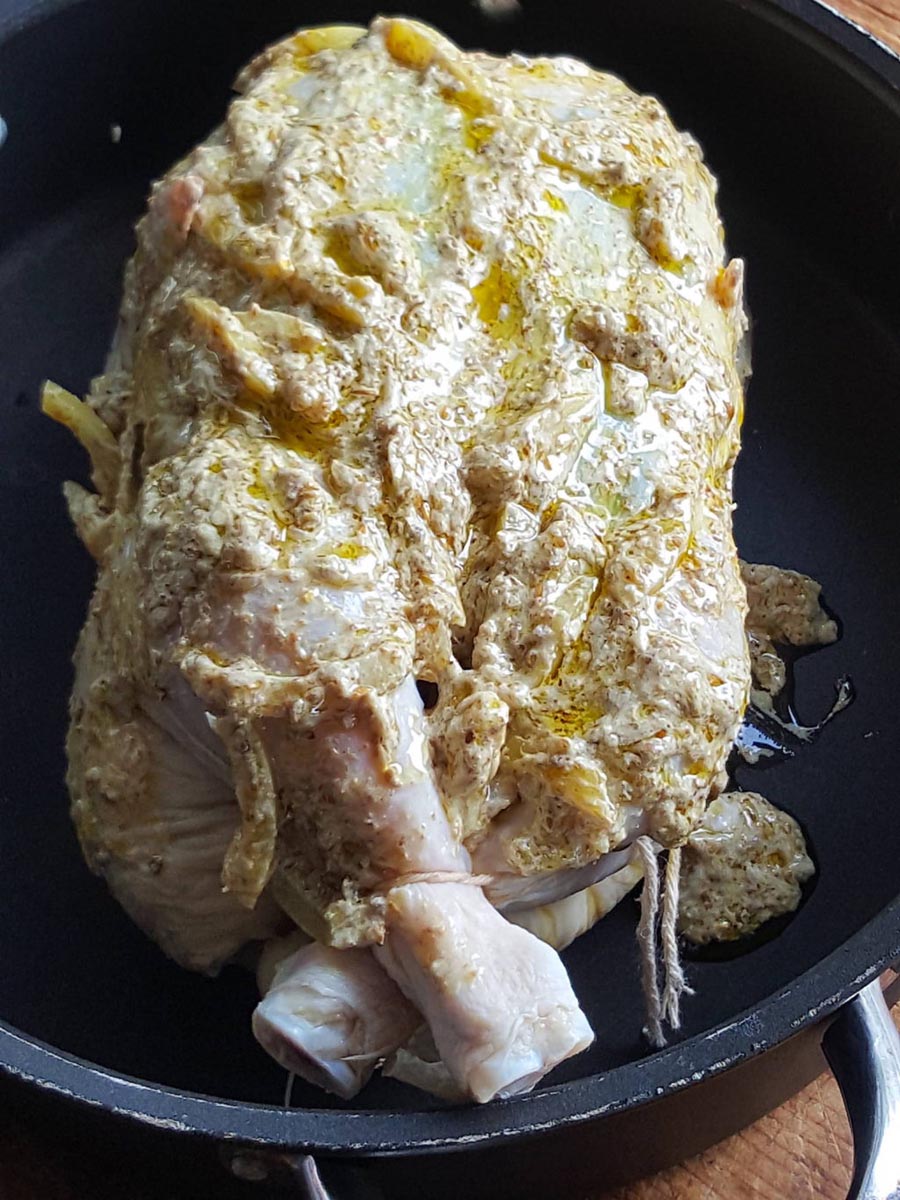Roast Chicken with Lime Leaves

Introduction
Serves: 6
Ingredients
Lime leaves (kaffir lime leaves)
2 wedges preserved lemon
1 cup unsweetened plain yoghurt
1 Tbsp crushed coriander seeds
½ tsp ground cumin
1 tsp flaky sea salt, plus more for sprinkling
2 Tbsp extra virgin olive oil
Water as required
Method
1 Preheat oven to 180°C (350°F) and have chicken at room temperature. Remove any lumps of fat from inside chicken cavity. Slip a lime leaf between chicken breast skin and meat on both breasts of the chicken. Tie a piece of string around the parson’s nose, then tie the legs together pinning the wings in place, bring the string back to the parson’s nose and tie it in a tight bow. Put chicken in a smallish roasting tin or oven dish (see Recipe Notes).
2 Remove pulp from wedges of preserved lemon and discard, rinse rind and pat dry and slice. Mix yoghurt, coriander seeds, cumin, sea salt and oil in a small bowl and add preserved lemon. Spread dressing over chicken. Pour ½ cup water around chicken (not over the top!). Roast for 30 minutes, then remove chicken from oven and baste, adding more water to prevent juices scorching. Return chicken to oven for another 20 minutes. Check it again after this time, basting and adding a little more water if necessary. If the chicken is a good deep golden brown yet not cooked through, drape it loosely with tin foil. The chicken is ready when the juices run clear when pierced with a skewer – check the thickest part of the thigh – and when the legs are wriggled, they move freely.
3 Remove chicken from the oven when it is cooked and let it rest at room temperature still in the tin for 20 or so minutes but up to 1½ hours (it will have more flavour if rested) covered with a ventilated cover. Carve into joints and serve.
Recipe Notes
The size of the roasting tin is important when roasting a chicken. If it is too big, the juices will evaporate too quickly as they are spread over a wider surface, and the gorgeous ‘goo’ which forms can scorch and burn ruining the chance of making a tasty jus. If the dish is too small, it makes basting the chicken difficult, and also turning it over during cooking is likely to result in stock splashing everywhere. The juices (stock or water and chicken juices) will not evaporate quickly enough for goo to form if the chicken is tightly packed in a dish. Choose a tin with enough room to easily turn the chicken during cooking.
The aim is to provide a little steam to keep the chicken tender during cooking, but not flood the dish so the chicken is swimming in water. Keep it moist during cooking and scrape up any sticky goo that forms in the tin and mix it in with the liquid.


